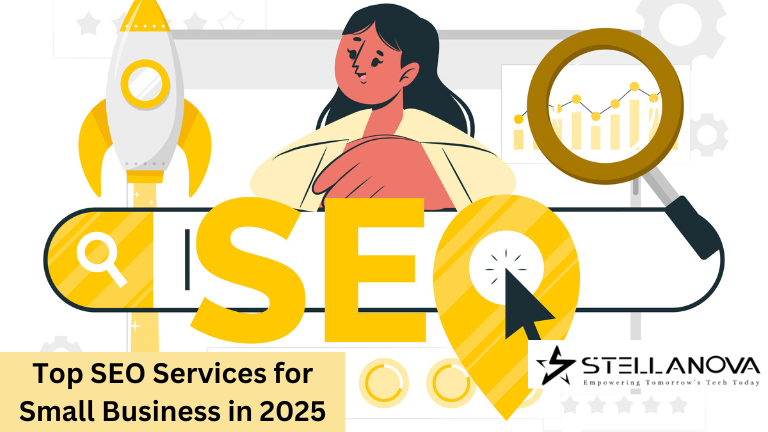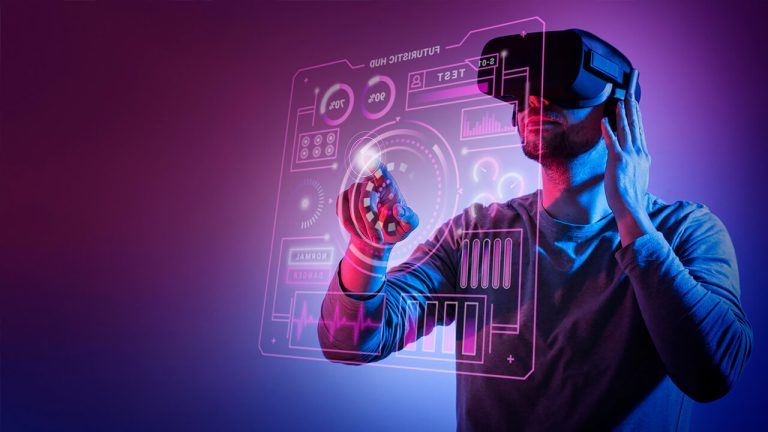Top SEO Services for Small Business in 2025
Top SEO Services for Small Business in 2025 Nowadays, having an SEO-friendly online presence has become essential for every business, especially for small businesses in the USA. SEO services help brands reach higher positions in search results, generate leads, and grow effectively in the digital era. What is SEO? Search Engine Optimization (SEO) is a combination of methods that help businesses reach a larger audience online. For instance, if you have a small business and want to reach more people, you can make your website SEO-friendly by: Including effective keywords in your content Making the website visually appealing Generating backlinks so search engines can find you easily Why is SEO Important for Small Businesses? In a competitive market, small businesses must leverage SEO to stay ahead. Here are some key benefits: Increased Online Visibility – Helps your business appear in search results, attracting more potential customers. Cost-Effective Marketing – Organic traffic from SEO is more affordable than paid advertising. Builds Credibility and Trust – Higher search rankings create a sense of credibility among users. Targeted Traffic – Reaches users actively searching for your products or services. Competitive Advantage – Helps small businesses compete with larger companies. Improved User Experience – Faster, mobile-friendly sites enhance user experience. Long-Term Results – Consistent traffic and brand awareness over time. Measurable Results – Track performance using analytics tools. Top SEO Services for Small Businesses in 2025 Local SEO Local SEO helps businesses attract nearby customers. Key optimization strategies include: Google Business Profile Optimization – Ensuring accuracy and completeness improves visibility. Local Keyword Research – Using region-specific keywords increases relevance. Customer Reviews Management – Encouraging and responding to reviews builds trust. On-Page SEO Optimization On-page SEO enhances your website’s visibility by optimizing its elements: Keyword Research and Content Optimization – Using relevant keywords naturally improves rankings. Meta Tags and Header Tags – Well-structured meta descriptions and headers enhance SEO. Image Optimization – Adding alt text and compressing images improves load speed. Technical SEO Services Technical SEO enhances website performance and searchability: Site Speed Optimization – Faster websites reduce bounce rates. Mobile Responsiveness – Mobile-friendly designs improve user experience. SSL Implementation – HTTPS encryption builds trust and boosts rankings. Content Marketing and Blogging Content marketing helps businesses engage their audience and improve SEO rankings: Regular Blogging – Sharing insights keeps audiences engaged. Diverse Content Formats – Videos, infographics, and podcasts cater to different audiences. Updating Existing Content – Refreshing old content maintains relevance. Link Building and Backlink Strategy Building high-quality backlinks improves domain authority and rankings: Guest Blogging – Publishing content on reputable sites earns valuable backlinks. Local Business Citations – Listing businesses in directories boosts local SEO. Influencer Collaborations – Partnerships help gain credible backlinks. Avoiding Black-Hat Techniques – Avoid spammy backlinks to prevent penalties. Voice Search Optimization With the rise of voice search, businesses must optimize for conversational queries: Use long-tail keywords in natural language. Optimize content for question-based queries. Ensure mobile-friendliness and fast-loading pages. SEO Analytics and Reporting Tracking SEO performance is key to ongoing success: Utilize Tools – Google Analytics and Search Console track website performance. Monitor Key Metrics – Analyze traffic, bounce rates, and keyword rankings. Regular Reporting – Monthly or quarterly reports guide strategy improvements. Adjust Strategies – Optimize based on data trends and insights. How to Choose the Right SEO Services Choosing the right SEO company is crucial. Consider the following: Identify Your Business Goals – Understand your needs (brand awareness, traffic, conversions). Look for Experience and Expertise – Choose agencies with proven SEO success. Customized SEO Solutions – Avoid generic strategies; opt for tailored plans. Transparency and Communication – Ensure regular performance updates. Budget-Friendly Packages – Compare pricing and value for money. Why Choose Us for Your SEO Needs? We specialize in helping small businesses grow online with customized SEO strategies. Our team focuses on Local SEO, Content Marketing, and Technical SEO to improve search rankings and business visibility. Our cost-effective solutions deliver measurable results. Conclusion In 2025, investing in top SEO services is essential for small businesses to stay competitive. Leveraging the right strategies helps businesses reach their target audience, increase brand awareness, and achieve sustainable growth. Contact Form



